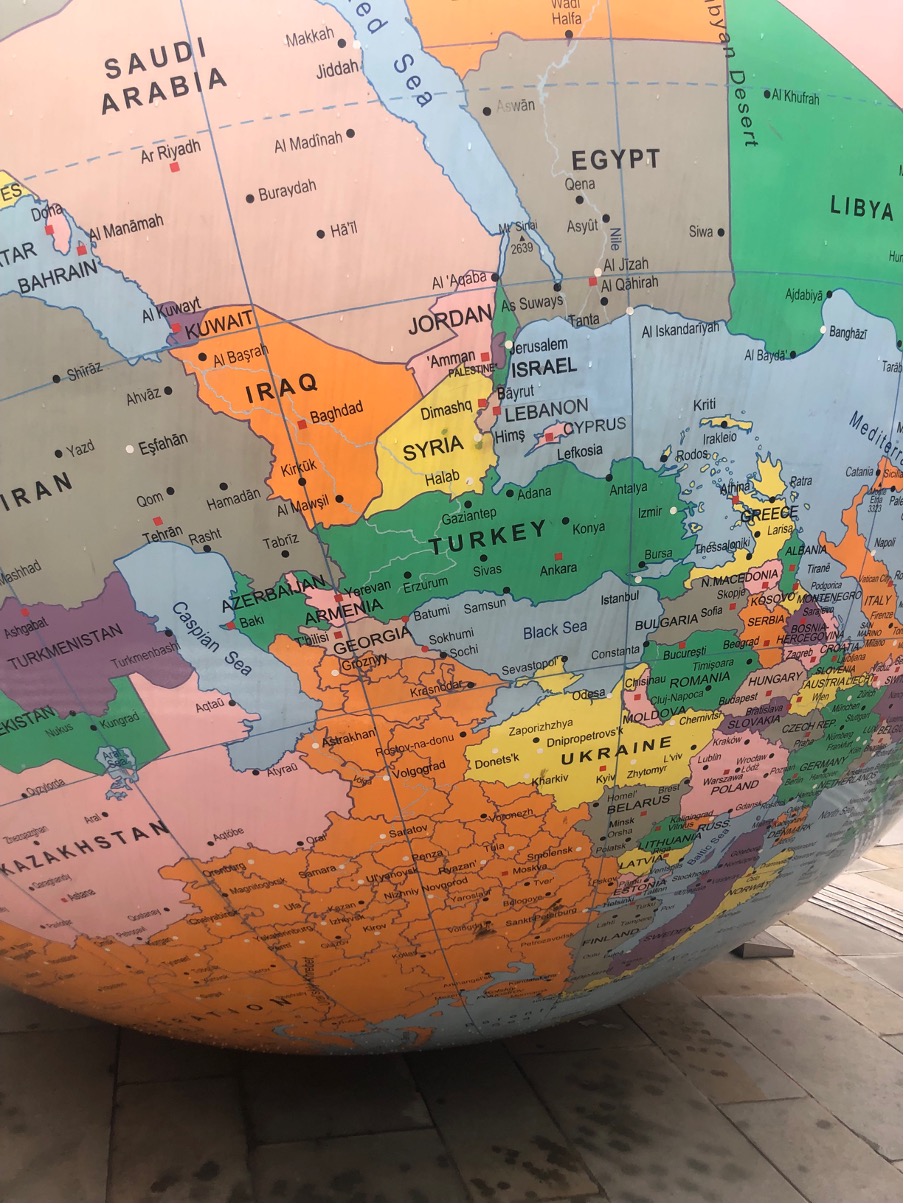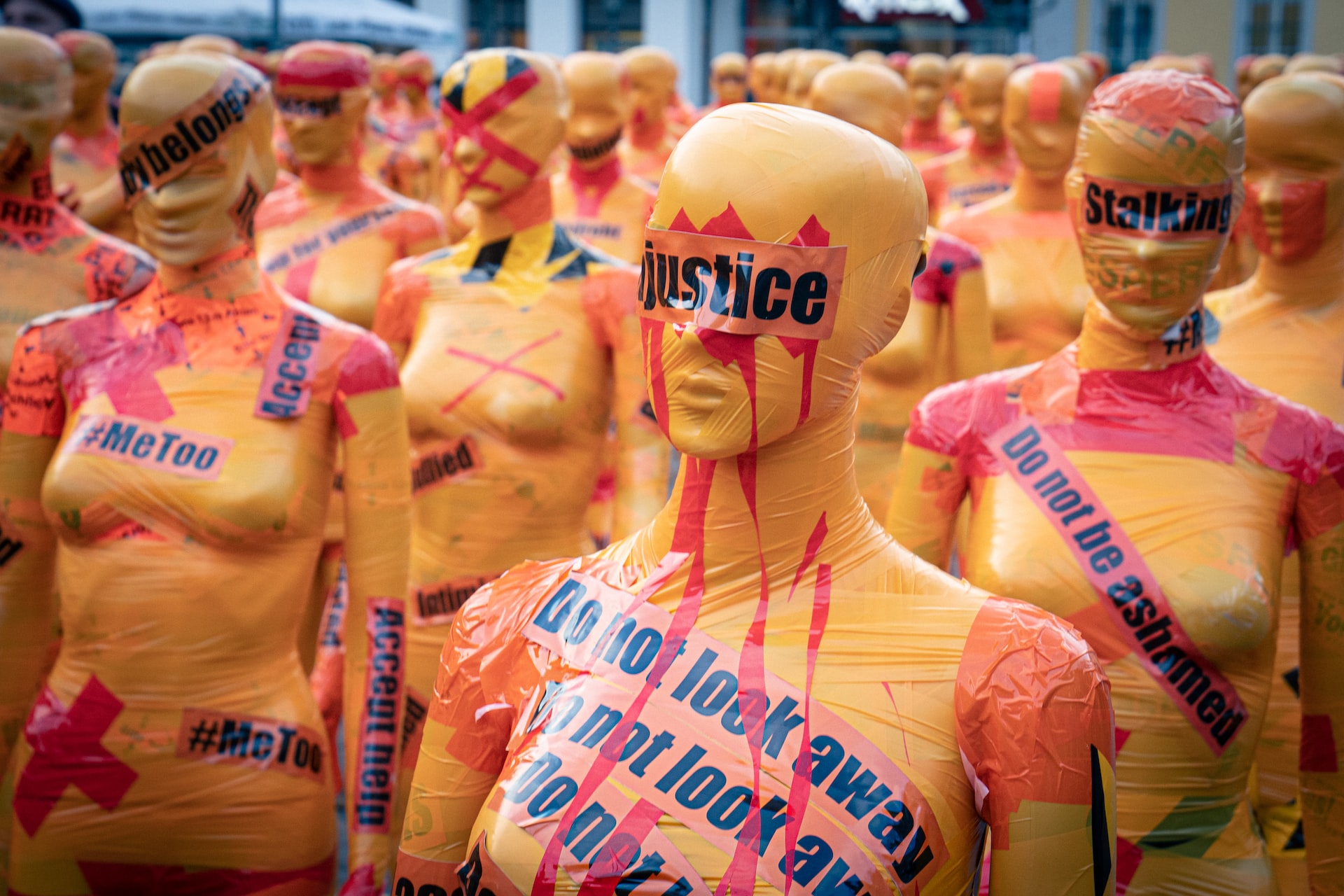As the Palestine-Israel conflict arouses strong feelings on campus, Peter Ramsay explains why we should care for each other and for our community by caring for the quality of our arguments.
The renewed conflict in the Middle East arouses strong emotion among members of the LSE community. Thousands have been killed or wounded in Israel and Gaza. Some of our students and staff members identify strongly with one side or another in the long-running conflict. They may have family members in the region. Some will also have genuine fears about the impact of the passions aroused in the UK on the safety of people they love.
The arguments this conflict generates are fierce. Some participants summarise their cause with the slogan ‘Palestine must be free from the river to the sea,’ others will claim that ‘Israel has a right to self-defence.’ In the current context, each of these ideas could be construed as an apology for genocide, although most people expressing one or the other of these will have reasons for saying they are not doing that. Still, if someone believes that is the effect of the idea, then that will cause anger and anxiety.
 The World Turned Upside Down, a sculpture by Mark Wallinger on the LSE campus/Marina Franchi
The World Turned Upside Down, a sculpture by Mark Wallinger on the LSE campus/Marina Franchi
So how should we at LSE handle the arguments and the passions that this major international crisis arouses when they arise in classes, lectures, or public events?
We should approach the conflict in the spirit of what we are: a university. LSE’s previous Vice-Chancellor, Minouche Shafik, explained what that means when, drawing on the words of LSE’s founders, she described us as “a community of people and ideas founded to know the causes of things for the betterment of society.”
A sceptic might say we cannot be much of a community, if we are riven by the harsh, adamantine conflicts like that between Israel and the Palestinians, or indeed other disputes that seem equally intractable. But in truth, communities of all sorts frequently find themselves at odds. And we may often find that we disagree strongly with someone on one disputed question only to agree as strongly with them on another. We can hold our community together by keeping its mission at the forefront of our minds.
That mission requires first and foremost that we maintain our staff and our students’ freedom to research, to think, to write, and to speak about the crisis, its effects, and its causes. This is true of our engagement with all disputes about society, but academic freedom is never more important than when traumatic events arouse strong passions.
academic freedom is never more important than when traumatic events arouse strong passions.
To understand why academic freedom is so critical to our existence as a community of learners we need to think about what it is that LSE does in the effort ‘to know the causes of things’ so that society might be bettered. Some academics collect data and seek to interpret it; some seek to offer theories that explain the data; some of us read the existing literature reinterpreting the ideas of earlier thinkers; some of us work on the methods and tools we use to do the other things. Most of us do more than just one of these activities at least some of the time. But all of us engage in argument about who has got it right on any of these matters.
Most of us also teach students about what has been discovered so far and the arguments that we are engaged in. Teaching students is not merely a question of passing on knowledge or ideas from teacher to student, but also of students learning the ways of thinking and arguing that researchers, theorists, and scholars use to discover the best explanation of the causes of things. It is through practising these ways of argument that students learn how to develop their own independent perspectives on controversies, to gain the confidence to be able to engage in the collective argument through which we work out what is going on, and to acquire a critical understanding of its results.
Arguments are essential to the whole process of higher learning because the causes of social things — of the structures, processes, and ideas through which human society is organised and through which it changes and develops — are not necessarily obvious. If they were obvious, there would be no need of the social sciences or of higher education in order to know them. The data, its interpretation and its theorisation are all complex and multifaceted. Moreover, these arguments are further complicated in the social sciences because the varying interests of human groups are at stake in any attempt to explain social phenomena. As a result, one type of argument that we always have to deal with is the extent to which theories and explanations mask particular social, economic, or political interests.
Most of what we do in order to identify the causes of things involves disagreement.
Which brings us back to Israel and to Gaza. The first implication of LSE’s need to ensure freedom of argument is that what LSE cannot do is take a side in the political dispute as an institution. Most of what we do in order to identify the causes of things involves disagreement. The freedom to disagree is necessarily threatened if the school takes an official position on one side or the other. The school wisely chose not to take a position on the Russian invasion of Ukraine despite many other HE institutions doing so. Following this precedent, LSE is not now open to the charge of inconsistency if it takes no side in the violence in the Middle East.
The second thing we must do is acknowledge the fear, fury, and sorrow, but insist that these emotions cannot be allowed to limit our discussion of what has occurred, why it has occurred, and what its consequences may be. To allow that would be to abandon our duty to ourselves as a community because we would risk closing down arguments that must be heard if we are to identify the nature of the problem about which there is so sharp a disagreement.
Thirdly, we must then do the most important thing that a university can. We should encourage each other to present the arguments in such a way as to shed as much light as we can on what is happening, while generating as little heat as possible. The rightness or wrongness of a position – or its good or bad faith – cannot be determined by the strength of feeling behind it. We need to rely on evidence and logical argument, and to test out the claims that all of us are making by these means. We should care for each other and for our community by caring for the quality of our arguments.
The rightness or wrongness of a position – or its good or bad faith – cannot be determined by the strength of feeling behind it.
When discussion is heated, neither teachers nor students nor event chairs should tolerate threats or incitement to violence against other students or staff. However, while direct threats should not be tolerated, we cannot prohibit words or political arguments just because they make people feel offended, uncomfortable, or ‘unsafe.’ To do that would be to make understanding a dispute as polarised as the one between the supporters of Israel and those of Palestine essentially impossible.
Teachers and students should be encouraging each other to express themselves carefully and, therefore, as clearly as possible, and to remain civil throughout. Teachers must be careful not to abuse their authority by insisting on the truth of a particular view to the exclusion of counterarguments. They must allow students to dissent. In public events and debates there is bound to be more passion because people will inevitably seek to persuade rhetorically. But here, too, chairs should encourage calm reflection and ensure that all are able to listen to what is said.
In this blogpost, I have focused on my institution. No doubt colleagues at other institutions will recognise much of what I am saying. But the feelings and anxieties that are generated by real-world traumas and the challenge these present to how we live and work together are not experienced in the abstract. We need to keep in mind that higher education cannot be reduced to a private exchange in which the student-consumer pays for the opportunity to increase their human capital and is, therefore, entitled to feel comfortable while accessing this service. If higher education is really involved in knowing the causes of things and bettering society, then it is necessarily a public activity of sharing and disputing knowledge, and of risking our pride and our identity for the public benefit. And, for students especially, this essential, if challenging aspect of university life happens in particular places such as the classrooms, lecture halls, and corridors of LSE.
The LSE Academic Freedom network was formed by LSE staff to help sustain this idea of our community – not to promote different sides shouting past each other on emotive and contested topics, but to enable the possibility of learning, and possibly even of discovering some common ground.
_____________________________________________________________________________________________
This post is opinion-based and does not reflect the views of the London School of Economics and Political Science or any of its constituent departments and divisions.
_____________________________________________________________________________________________
Main image: Marina Franchi






Good stuff